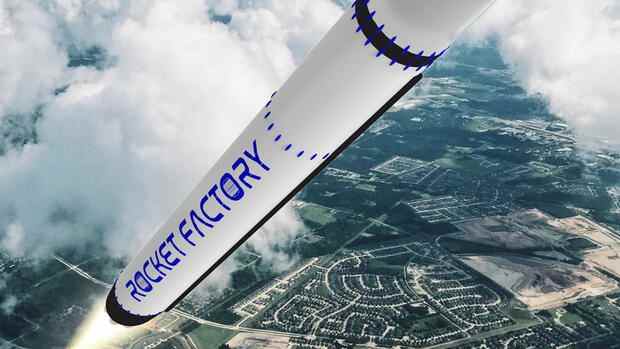Dusseldorf Stefan Tweraser has long been known in the media industry. Most recently he worked as product manager at the music service Deezer, before that he was Germany manager at Google. But now the Austrian has changed fields – and leads the space company Rocket Factory Augsburg (RFA). The start-up enters the market with a high standard: to build the world’s cheapest rocket.
How should a media manager help? The 51-year-old is a good networker, but he cannot bring in engineering knowledge. But that is exactly his strength, says Tweraser. At RFA there are enough ideas and technical knowledge, almost too much. For example, ideas were circulating in the company to build larger rockets in order to also transport larger satellites. But that only distracts from the actual goal.
“At RFA, I want to sharpen the focus on the product,” says Tweraser. “With all of our creativity and passion for space travel, we are faced with the exciting challenge of building an affordable rocket that is highly reliable.”
At the end of 2022, the rocket called “RFA One” is scheduled to fly for the first time. With a diameter of 2.15 meters, it is a so-called microlauncher, with which small satellites can be placed in orbit at low cost. “We have signed contracts in the low double-digit million euro range,” says Tweraser.
Top jobs of the day
Find the best jobs now and
be notified by email.
In addition to the Bremen-based aerospace company OHB, which is also an anchor shareholder, customers are primarily companies that offer telecommunications or earth observation services. There are letters of intent with customers in the mid three-digit million euro range.
Missile construction is a growing market
“Many companies are considering setting up their own satellite network or using the data information from space,” says Tweraser. For example, car manufacturers: Autonomous cars cannot look around the corner with their lidar sensors, as data from space becomes a key competitive advantage. “We are convinced that every industry can and will benefit from data from space,” says Tweraser.
With the exception of the USA and China, there are no other country in which there are as many start-ups involved in rocket construction as in Germany. In addition to RFA with around 125 employees, Isar Aerospace and Hyimpulse are also active in the field.
Companies are attracted by a growing market. While around 4,000 satellites have been placed in the history of space travel, the number is set to rise to more than 40,000 in the next ten years, according to various estimates. Numerous companies and countries are setting up so-called Leo constellations for communication and earth observation services in low earth orbit.
With many tricks to the cheapest rocket
“Over time, the rocket will become a commodity, and our rockets should launch every week before the end of the decade,” says Tweraser. “That brings with it completely new challenges and requires a lot of customer proximity.”
He believes that his unfamiliarity with the industry is an advantage for RFA. “I want to develop the corporate culture further,” says the CEO. “Building rockets is a huge adventure and our passion, but that shouldn’t shape the corporate culture alone.”
The top priority must be to build the cheapest rocket on the market – with all the tricks and tricks. RFA uses ignition elements from diesel engines for its engines. “We adapt successful products available on the market from the energy, oil and automotive industries and design our rocket for series production,” says Tweraser.
The tanks are also unusual. In contrast to other manufacturers, RFA does not use synthetic fiber composites for them, but steel. They are heavier, but they do not have to be coated, are more robust and easier to process. The company procures the tanks from a manufacturer who otherwise produces them for breweries. “All of this lowers costs and ultimately the price for our customers.”
Tweraser speaks of the cost of three million euros for a two-stage rocket that puts the satellite into orbit. However, it then has to swing itself into its orbit. With a third orbital stage, the satellite can be set down very precisely, but then the launch costs more. “Today, Space X pays five million euros, so we’re right at the front,” says Tweraser.
More: Start-ups are breaking up encrusted structures in German space travel
